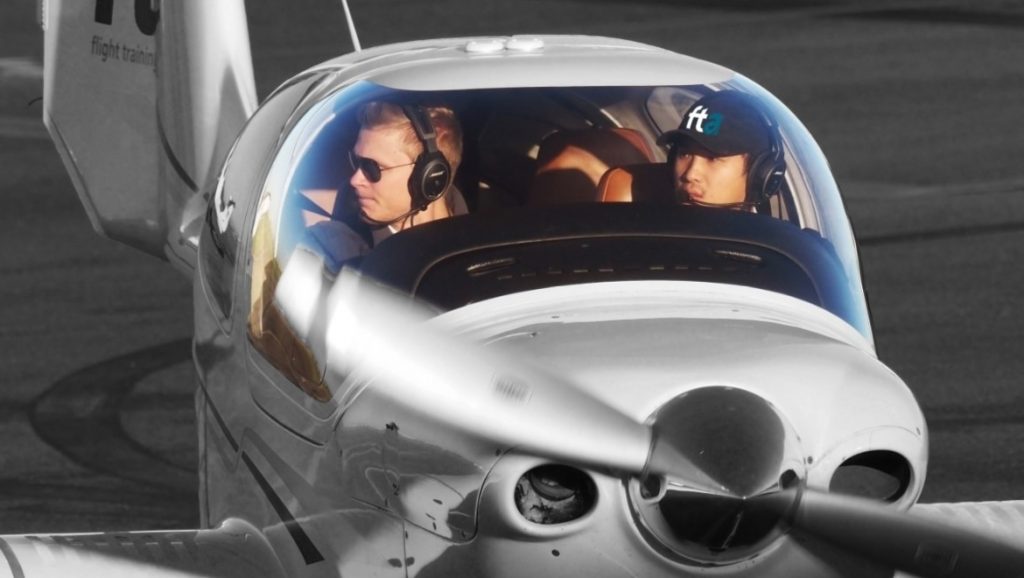 Origins
Origins
Flight Training Adelaide (FTA) commenced operations in 1982. Over its 38-year history, FTA changed ownership on a number of occasions. As of 2005, FTA is owned by Hong Kong-based Young Brothers Aviation, which purchased the college from BAE Systems Australia.
Location
FTA is located at Parafield Airport (ICAO YPPF) in Adelaide’s northern suburbs. Parafield Airport is one of the best-suited airports to train students and give the training environment and flight operations similar to that of commercial operations worldwide.
Parafield Airport has four runways with parallel taxiways. FTA accounts for over 90 per cent of movements at the airport. Our students will also operate among other smaller aero clubs, general aviation and helicopter traffic.
The blend between training aircraft and some commercial operations at Parafield Airport, allows students to develop outstanding situational awareness, gives them real-time exposure to positive tower and approach control in a nurturing, learning and safe environment, with particular tolerance for English second language students. FTA’s training partners come from Hong Kong, India, the Philippines, Taiwan and Japan, to name a few.
Training ethos
FTA’s training ethos of safety, quality and customer service is highly valued by all its customers. The focus is on command and scenario-based training, which is perfectly suited to training future airline training captains. This ethos is valued by the world leading airlines that have trained or are currently training at FTA.
Anyone researching for the most appropriate flight school for their training needs is encouraged to ask challenging questions about the provider’s experience in delivering airline cadet programs. Flying training requires a significant investment and should be delivered by a provider with substantial industry knowledge, strong reputation and appropriate equipment that offers the symbiosis required to train students for an airline career.
In 2020, FTA provided training for the following airlines (in alphabetical order) Cathay Pacific, Cathay Dragon, China Airlines, Cebu Pacific, Cobham Aviation, Hong Kong Government Flying Service, IndiGo, Starlux, Skymark, Tag Aviation and Virgin Australia.
In addition, FTA delivers training for students of its university partner, University of South Australia, and also to private students. Although these students are not affiliated with an airline they are trained to the same impeccable standard as the airline cadets, using the same resources.
The syllabus delivered to airline cadets, UniSA students and the private students is based on the relevant licence requirement. The only area of difference will be in the multi crew co-operation training phase of the course where airlines expect FTA to customise the content to include specific airline procedures to facilitate the transition of the student into the airline. More details on these courses will be shown later in the article.
FTA flight instructors have a maximum of four students assigned to them and will instruct on average only 700 hours per year to ensure students receive quality, face-to-face training to meet a high standard of competency. Flight instructors may be assigned a private student, a Cebu Pacific student and an IndiGo student, using the same resources for training.
FTA commits to its customers by assigning a dedicated training manager to a particular airline or group of private students. The training manager monitors the instructors to ensure students are progressing in line with timelines published in the schedule of fees, aircraft bookings are made in advance, and monitor the overall performance of each student. Training managers meet with students regularly to ensure their training needs are met and they are supported through any training challenges they might encounter.
FTA’s training ethos does not only pertain to performance in the classroom, aircraft or simulator, but significant time is spent mentoring and preparing students in their development as aviators. Students are taught that pre-flight planning and preparation makes all the difference and creates increased situational awareness while flying. As a student progresses through training they will be allowed to expand their decision-making capability and autonomy as they meet the relevant training competencies.
In the latter part of their training program students are expected to have a strongly developed sense of threat and error management and will be expected to demonstrate the individual planning and execution skills of a commercial pilot. Skillsets include interpreting weather forecasts, preparing flight plans, fuel and load considerations, and any other relevant information.
The development of skills and knowledge is recorded in the student’s electronic training file. Additionally, emphasis is placed on a student’s personal skills and professional development while under training. Graduated FTA students are the walking and talking legacy of the training output of FTA and ultimately become our biggest ambassadors. It is expected that they will always be well-groomed and neatly dressed in uniform, displaying courtesy and the highest standards of integrity and honesty.
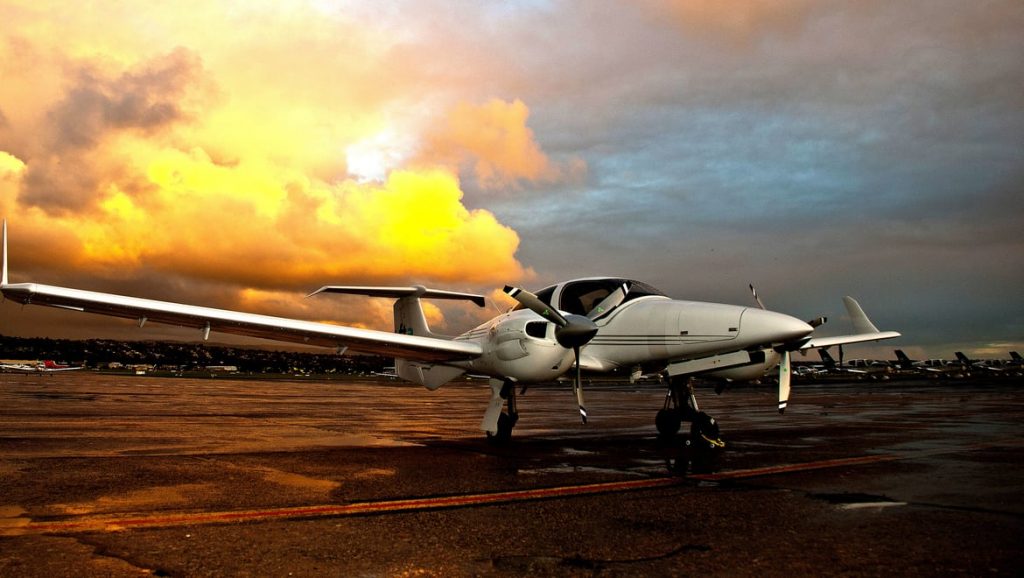
Courses and delivery methods
FTA offers private students a number of training courses. The pathway shown below is the same as used for our airline partners.
- AVI50219 Diploma of Aviation (Commercial Pilot Licence – Aeroplane)
The AVI50219 Diploma of Aviation (Commercial Pilot Licence – Aeroplane) is delivered full time over a 31-week period.
Over the 31 weeks, the student will fly 155 hours in a DA40 aircraft, including 70 hours pilot in command, also referred to as solo hours, and 10 hours in the DA40 simulator.
During the 31 weeks, the student will also attend over 300 hours of face-to face ground theory instruction that covers CASA’s seven ground theory Commercial Pilot Licence subjects. FTA’s training ethos is to educate students on the subject matter knowledge rather than teaching the student how to pass the ground theory exams.
The course is delivered as follows:
Week 1–6. Full-time Ground School, Monday to Friday, 08:30–16:00.
Week 7–13. Flying Modules 1 and 2. Student must be available six days of the week to complete an average of three to four flying events per week. This allows training managers to ensure effective resource management when flights need to be rescheduled.
Week 14–19. Full-time Ground School, Monday to Friday, 08:30–16:00. On completion of Ground School phase 2 the student will have completed all seven CASA CPL ground theory subjects.
Week 20–31. Flying Modules 3–5, culminating in the Commercial Pilot Licence flight test.
- AVI50519 Diploma of Aviation (Instrument Rating)
Having completed an AVI50219 Diploma of Aviation (Commercial Pilot Licence – Aeroplane), and subject to having a valid CASA class 1 medical, the licence holder can operate a single engine piston aircraft as a commercial pilot under visual flight rules.
The next step in their career progression is successfully completing an AVI50519 Diploma of Aviation (Instrument Rating). This will allow the licence holder to operate a multi engine piston aircraft under instrument conditions.
AVI50519 Diploma of Aviation (Instrument Rating) is delivered full time over eight weeks. During the course the student will attend 70 hours of face-to-face ground theory instruction, and complete six hours in a DA40 aircraft, 27 hours in a DA42 aircraft and 22 hours in the DA42 simulator. The course is delivered as follows:
Week 1–2. Full-time Ground School, Monday to Friday, 08:30–16:00.
Week 3-8. Flying towards the DA42 type endorsement and instrument rating, culminating with the instrument rating flight test.
- AVI60219 Advanced Diploma of Aviation (Pilot in Command)
The last phase of training delivered in FTA’s cadet program, which is also available to the private students, is the AVI60219 Advanced Diploma of Aviation (Pilot in Command).
The AVI60219 Advanced Diploma of Aviation (Pilot in Command) is a 13-week program, with the initial 11 weeks comprising full-time ground school towards CASA ATPL subjects.
The final two weeks is the multi crew co-operation course delivered in our generic B737-800 FTD or A320 FTD, depending on customer requirement. The multi crew co-operation will teach the student how to operate the aircraft as a crew, following multi crew procedures, manuals and radio calls.
During the multi crew cooperation course the student will operate the aircraft in conjunction with another student. Sorties are four hours in duration that are split in two blocks of two hours each. During one block the student will operate as the captain (pilot flying), and the second block acting as the first officer (pilot monitoring). The MCC program presents its own challenges given that the student will operate an advanced jet flying at 10 miles a minute and weighing 50 tonnes or more.
- Other fixed wing courses
In addition to the three courses detailed above, FTA also offers the following fixed wing programs:
- AVI50419 Diploma of Aviation (Flight Instructor)
- Recreational Pilot Licence
- Private Pilot Licence
Upskilling
FTA can deliver the above courses to a private student back-to-back over a 52-week period. However, it should be noted that the courses are standalone. Students entering with prior experience can join any of the courses, provided they meet the pre-entry requirements. Recognition of prior learning is offered to students after an assessment process.
Helicopter training
FTA also has a helicopter school, with several helicopter courses available to private students. As with fixed wing training, FTA has a trained several institutional helicopter customers such as China Rescue Salvage and Babcock and is the training provider of choice for the Hong Kong Government Flying Service.
The training ethos at our helicopter school is the same as that of fixed wing school. Similarly, the syllabus and instructors available to our private students are the same as those that instruct FTA’s rotary wing institutional customers.
Helicopter programs are:
AVI50319 Diploma of Aviation (CPL– Helicopter)
Over 32 weeks, students will fly 93 hours in a Schweizer 300CBi helicopter, including 35 hours pilot in command (solo), and 10 hours in the TH100 simulator.
Students will also attend over 300 hours of face-to-face ground theory instruction that covers CASA’s seven helicopter ground theory Commercial Pilot Licence subjects. The course is delivered as follows:
Weeks 1–8. Full-time ground school. Full-time ground school is Monday to Friday, 08:30–16:00.
Weeks 9–16. Flying Modules 1 and 2. Student must be available six days of the week to complete an average of three to four flying events per week
Weeks 17–22. Full-time ground school. Full-time ground school is Monday to Friday, 08:30 – 16:00. On completion of Ground School phase 2, the student will have completed all seven CASA CPL ground theory subjects.
Weeks 23–32. Flying modules 3–4, culminating in the Commercial Pilot Licence flight test.
Students may elect to do the full training program in the Schweizer helicopter, or alternatively combine the program flying hours in the Schweizer and the Robinson R44 helicopter.
Other helicopter programs offered at FTA are:
- AVI50519 Diploma of Aviation (Instrument Rating)
- AVI50419 Diploma of Aviation (Flight Instructor)
- Private Pilot Licence
- Low Level Rating
- Night VFR rating
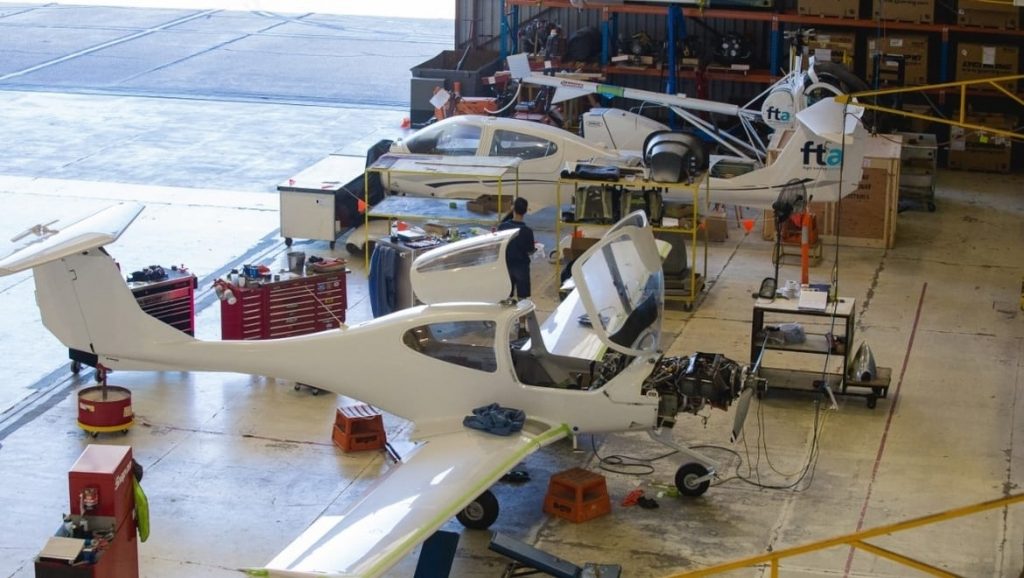
Pre-entry requirements
Student selection is the most important part of any cadet program. Flying training is challenging and by their very nature not suited for everybody. Specific aptitudes are required to give students the best possible chance to succeed.
When airlines are recruiting cadets, they look for a well-rounded individual. Someone with academic skills, in particular science, mathematics and English. The individual should have good motor skills, be able to multi task, perform well under pressure, have good mental capacity, decision-making skills and memory retention skills.
FTA has successfully selected thousands of students over the last 38 years. The pre-entry requirements for private students are very similar to airline cadets. FTA uses the same testing tool for private students that is used when contracted by an airlines to undertake cadet pilot selection for their respective cadet programs.
Selection tests are important because:
It is a strong indicator of the probability of success for the student embarking on the course.
It is a strong indicator for FTA as training provider that the course is suitable for a candidate before they invest in tuition fees, either self-funding or applying for a loan. Students wishing to access VET Student Loans must be properly selected by their training provider
Statistically and according to government data, over 93 per cent of students enrolled at FTA complete their qualifications.
The selection criteria will differ, depending on the different qualifications that the student can apply for as shown below:
AVI50219 Diploma of Aviation (Commercial Pilot Licence – Aeroplane) and AVI50319 Diploma of Aviation (Commercial Pilot Licence – Helicopter)
The selection test consists of three phases:
- CBT test
Two weeks prior to the selection tests at FTA, the candidate will be sent a link to computer-based courseware. The courseware is based on the CASA ground theory subjects, but does take into account that the candidate may not have had any previous flying experience or knowledge of aviation.
The length of the pre-selection course is sufficient to allow candidates time to study the subject matter, considering time restrictions of candidates in full-time employment.
On the day of selection the candidate will undertake an exam to test the knowledge of the subject matter. Pass mark is 70 per cent and the test is free of charge.
- PILAPT
Candidates who successfully complete the theory test will progress to the next stage of selection, which is a computer-based pilot aptitude test that tests a number of psychomotor and capacity skills. There’s a $200 fee to undertake this test.
- Interview
If the candidate successfully completes the PILAPT tests, then an interview is carried out by either FTA’s CEO or COO who makes the final decision to accept a candidate on a course.
If a candidate arrives for selection without a year 12 certificate or a Certificate IV or higher qualification, they will be required to complete an approved core skills test in reading and numeracy. The core skills test is free of charge.
Selection will take approximately four hours. Candidates travelling from interstate or regional South Australia are offered a night’s accommodation on campus free of charge.
Candidates with relevant previous experience will go through a process to determine recognition of prior learning that can potentially reduce their training hours and course cost.
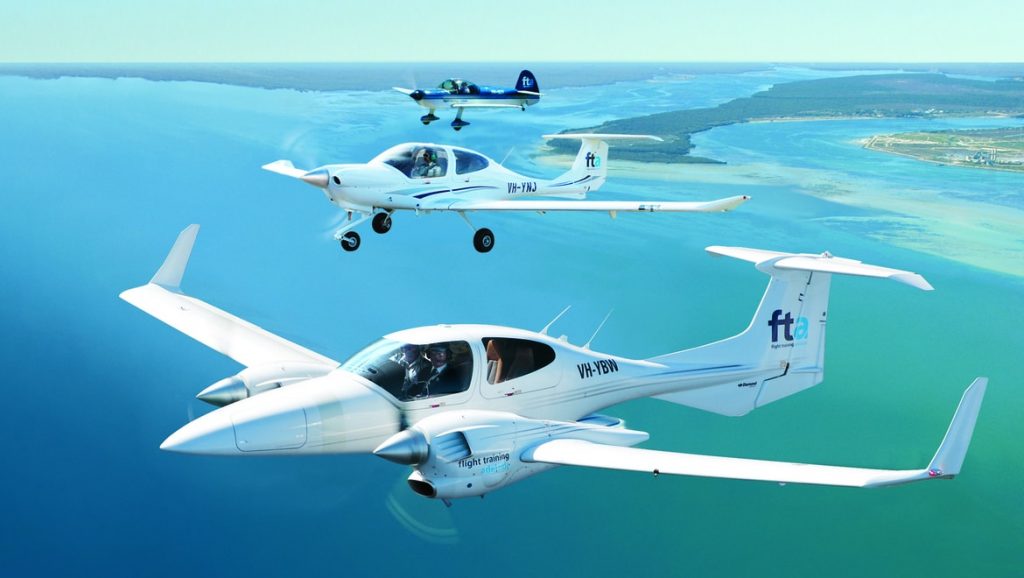
AVI50519 Diploma of Aviation (Instrument Rating)
Pre-entry selection for the AVI50519 Diploma of Aviation (Instrument Rating) for fixed wing or rotary wing training comprises of simulator assessment and an interview.
The simulator assessment is used to determine the candidate’s standard of knowledge and skills against the Commercial Pilot Licence competencies. The simulator assessment has an $86 fee.
FTA students who have completed the Diploma of Aviation (Commercial Pilot Licence – Aeroplane/Helicopter) are not required to do the simulator assessment, as FTA will have monitored the student’s performance throughout their training at FTA.
AVI50419 Diploma of Aviation (Flight Instructor)
Selection for the AVI50419 Diploma of Aviation (Flight Instructor) course is similar to that of the AVI50519 Diploma of Aviation (Instrument Rating), with the only difference being that check flight is done in a DA40 aircraft instead of a simulator. Cost for the check flight is $321.
Training assets and facilities
Over the last five years, FTA has made a significant investment in purchasing a full fleet of DA40 aircraft, DA40 procedural trainers, helicopter procedural trainers and two X737-800 simulators, one of which has an ATR flight model as well as FTA’S TRU A320 FFTX MPL simulator.
FTA’s current aircraft fleet consists of:
- 32 X DA40s
- 8 X DA42
- 2 X CAP10
- 3 X Schweizer 300CBi helicopters
Although the relevance of the equipment is important to the training program, FTA’s most important asset are its employees. FTA has dedicated ground theory instructors, dedicated flight instructors and dedicated jet simulator training instructors. In January 2020, FTA had close to 100 flight instructors, a large proportion of those having graduated from FTA’s own flight instructor program.
Unlike many other flight schools, our flight instructors do not deliver ground theory lectures as part of their employment requirements. This comes at a cost, but the training benefits of having dedicated ground, flight and jet simulator instructors far outweigh the cost to the company.
FTA has its own aircraft and simulator engineering facilities and performs all engineering duties with the exception of engine overhauls. There are three significant reasons for FTA to undertake its own engineering:
First and foremost is safety. FTA has full control of the engineering practices and has full confidence that all aircraft signed onto the line have been maintained to the highest standards
Secondly are the operational requirements. FTA operates thousands of hours per month, therefore there is a direct link between our operations team and our engineering team to ensure the required number of flying hours are available on the aircraft line.
Thirdly is training purposes. When teaching subjects such as piston engines, propellers, some aircraft systems or retractable undercarriages, the ground theory instructors may conduct that particular lesson in the Engineering hangar.
FTA has a fully residential campus that is available to private students. FTA courses are Centrelink approved and private students may be eligible for youth allowance and rent assist. It should be noted that these financial assistance packages are means tested and it is up to the student to contact Centrelink and find out if they are eligible for financial assistance.
FTA acknowledges the financial strain that COVID-19 placed on many families and have offered students accommodation discount. Should a student commit to residing on campus for the 31- or 32-week duration of the CPL course, FTA will cover 10 weeks of the accommodation costs. The student would pay for the first 21 weeks accommodation in the case of the fixed wing program or 22 weeks in the case of the rotary wing program and FTA would pay the last 10 weeks of accommodation.
Living on campus has very significant benefits. The private student will have the chance to mix with cadets from all different countries and cultures. The student will be fully submerged in an aviation environment without any external distractions throughout the training period. This is extremely important when studying towards a complex qualification that requires a heavy workload.
Additionally, the private students will have access to all sporting facilities on campus, including a fully equipped gym, multi-purpose sports courts, soccer pitch, swimming pool and the all-important 24-hour internet access.
Funding
FTA is a VET Student Loans (VSL) approved provider. Eligible students may defer their training fees via VSL. Information on VSL, including eligibility, can be found here: https://www.flyfta.com/course-information/student-loans/
Due to the financial hardship imposed by the pandemic, the government has waived the loan fee for VSL for census dates until 30 June 2021. For FTA’s January course, this equates to a saving close to $9,000.
Employment
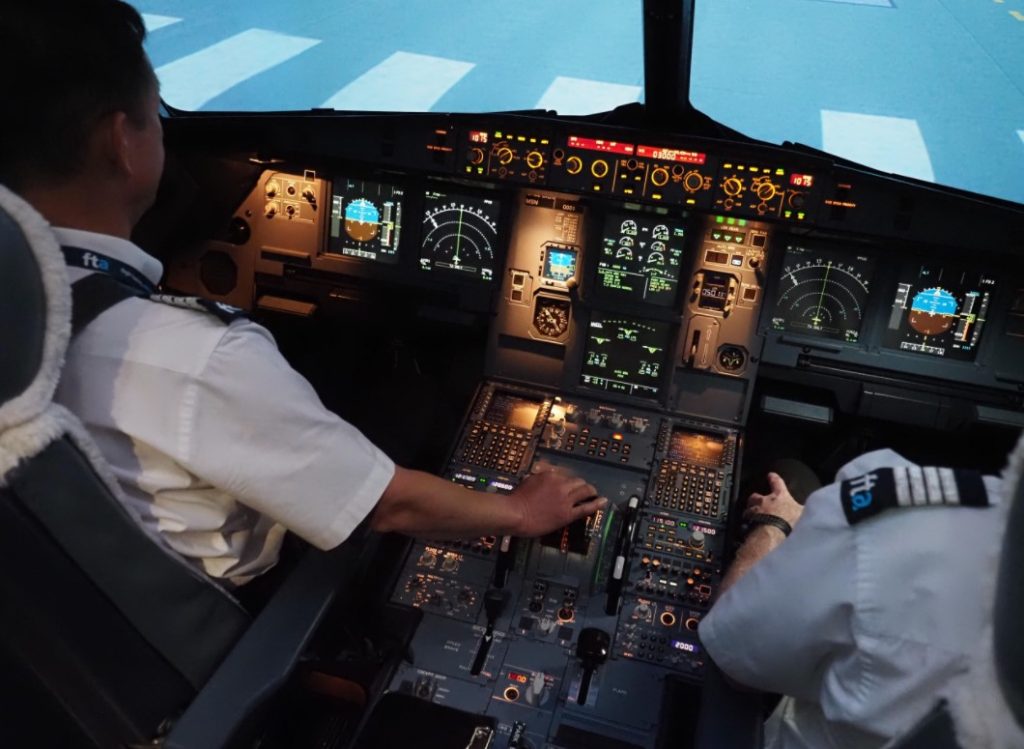
Anyone looking at the aviation sector today may wonder if becoming a pilot is wise as the industry has been one of the hardest hit by the pandemic.
However, now is the time to upskill or complete a qualification. If a student commences training in January 2021, they can be qualified by 2022, which coincides with the recovery period predicted by most airlines, predictions that were made without the knowledge of how the various vaccines will perform.
Already in Australia we are seeing a significant recovery in the domestic market, with hundreds of flying sectors activated as soon as one border opens.
Rex has launched 737 operations to operate the Sydney-Melbourne-Brisbane triangle in competition with Qantas and Virgin Australia.
International travel will commence in 2021 and a large number of pilots will take an early retirement option throughout 2021, all while current students are still on course.
Alternatively, there is the instructor employment pathway into the airlines. Over the last three years, FTA graduated on average 50 instructor students per year, 93 per cent of which were employed by FTA. As the aviation industry recovers, so does the need for more instructors, creating a potential employment opportunity to someone prior to joining an airline.
Challenges
Probably the biggest challenge presented to many Australian flight training organisations at the moment is the situation with border closures; domestic and international. Education is one of the top five industries in Australia, and we urge the government to look at options of bringing international students back into Australia.
At the time of writing, there are over 100 students from a number of international airlines waiting for their courses to commence at FTA. This puts FTA in a very precarious position against competitors in other countries that are making special arrangements to allow international students into their countries.
There is no reason why such a solution could not be done in Australia, adhering to strong quarantine rules and we strongly urge the government to look at such program. Without these students, many jobs and long-term contracts with the airlines will be lost.
Contact
If aviation is your passion, right now is a good time to commence your training. FTA’s January 2021 AVI50219 Diploma of Aviation (Commercial Pilot Licence – Aeroplane) course is the perfect time to start. You will also be taking advantage of the following offers:
- A significant reduced course price
- Close to $9,000 saving on loan fees if you defer your fees via VSL
- 10 weeks free accommodation if you elect to reside on campus for the duration of the course.
If you are interested in learning more, feel free to contact Karen on 08 8209 4309 or email [email protected]













